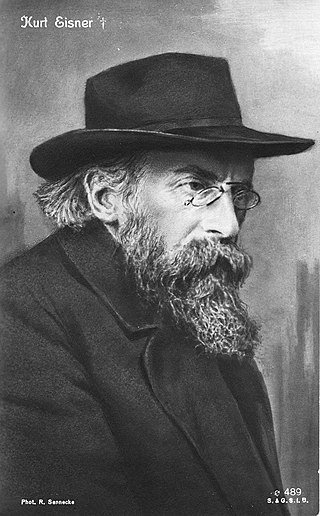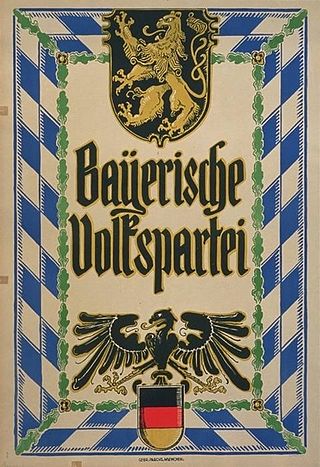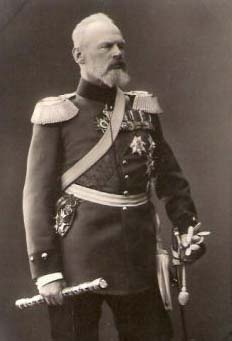
Bavaria, officially the Free State of Bavaria, is a state in the southeast of Germany. With an area of 70,550.19 km2 (27,239.58 sq mi), it is the largest German state by land area, comprising roughly a fifth of the total land area of Germany. With over 13 million inhabitants, it is the second most populous German state behind North Rhine-Westphalia, but due to its large land area its population density is below the German average. Major cities include Munich, Nuremberg, and Augsburg.

The House of Wittelsbach is a former Bavarian dynasty, with branches that have ruled over territories including the Electorate of Bavaria, the Electoral Palatinate, the Electorate of Cologne, Holland, Zeeland, Sweden, Denmark, Norway, Hungary, Bohemia, and Greece. Their ancestral lands of Bavaria and the Palatinate were prince-electorates, and the family had three of its members elected emperors and kings of the Holy Roman Empire. They ruled over the Kingdom of Bavaria which was created in 1805 and continued to exist until 1918.

Ludwig III was the last King of Bavaria, reigning from 1913 to 1918. Initially, he served in the Bavarian military as a lieutenant and went on to hold the rank of Oberleutnant during the Austro-Prussian War. He entered politics at the age of 18 becoming a member of the Bavarian parliament and was a keen participant in politics, supporting electoral reforms. Later in life, he served as regent and de facto head of state from 1912 to 1913, ruling for his cousin, Otto. After the Bavarian parliament passed a law allowing him to do so, Ludwig deposed Otto and assumed the throne for himself. He led Bavaria during World War I. His short reign was seen as championing conservative causes and he was influenced by the Catholic encyclical Rerum novarum.

Kurt Eisner was a German politician, revolutionary, journalist, and theatre critic. As a socialist journalist, he organized the socialist revolution that overthrew the Wittelsbach monarchy in Bavaria in November 1918, which led to him being described as "the symbol of the Bavarian revolution". He is used as an example of charismatic authority by Max Weber. Eisner subsequently proclaimed the People's State of Bavaria but was assassinated by far-right German nationalist Anton Graf von Arco auf Valley in Munich on 21 February 1919.

The Bavarian People's Party was a Catholic political party in Bavaria during the Weimar Republic. After the collapse of the German Empire in 1918, it split away from the national-level Catholic Centre Party and formed the BVP in order to pursue a more conservative and particularist Bavarian course. It consistently had more seats in the Bavarian state parliament than any other party and provided all Bavarian minister presidents from 1920 on. In the national Reichstag it remained a minor player with only about three percent of total votes in all elections. The BVP disbanded shortly after the Nazi seizure of power in early 1933.

Rupprecht, Crown Prince of Bavaria, Duke of Bavaria, Franconia and in Swabia, Count Palatine by the Rhine, was the last heir apparent to the Bavarian throne. During the first half of World War I, he commanded the 6th Army on the Western Front. From August 1916, he commanded Army Group Rupprecht of Bavaria, which occupied the sector of the front opposite the British Expeditionary Force.

Prince Leopold of Bavaria was born in Munich, the second son of Prince Regent Luitpold of Bavaria (1821–1912) and his wife Archduchess Augusta of Austria (1825–1864). He was a Field Marshal (Generalfeldmarschall) who commanded German and Austro-Hungarian forces on the Eastern Front in World War I.

Franz Bonaventura Adalbert Maria Herzog von Bayern, commonly known by the courtesy title Duke of Bavaria, is the head of the House of Wittelsbach, the former ruling family of the Kingdom of Bavaria. His great-grandfather King Ludwig III was the last ruling monarch of Bavaria, being deposed in 1918.

The King of Bavaria was a title held by the hereditary Wittelsbach rulers of Bavaria in the state known as the Kingdom of Bavaria from 1805 until 1918, when the kingdom was abolished. It was the second time Bavaria was a kingdom, almost a thousand years after the short-lived Carolingian kingdom of Bavaria.

The Kingdom of Bavaria was a German state that succeeded the former Electorate of Bavaria in 1806 and continued to exist until 1918. With the unification of Germany into the German Empire in 1871, the kingdom became a federated state of the new empire and was second in size, power, and wealth only to the leading state, the Kingdom of Prussia.

Eugen Siegfried Erich Ritter von Schobert was a German general during World War II. He commanded the 11th Army during Operation Barbarossa, the invasion of the Soviet Union. Schobert died when his observation plane crashed in a Soviet minefield.

Prince Adalbert of Bavaria was a member of the Bavarian Royal House of Wittelsbach, historian, author and a German Ambassador to Spain.

Luitpold Rupprecht Heinrich Prinz von Bayern is a member and second in line of succession to the headship of the House of Wittelsbach, which reigned as Kings of Bavaria until 1918, and the head of König Ludwig Schlossbrauerei.

Ludwig Siebert was a German lawyer and Nazi Party politician who served as the Minister President of Bavaria in Nazi Germany from 1933 to 1942.
The Anif declaration was issued by Ludwig III, King of Bavaria, on 12 November 1918 at Anif Palace, Austria.
The Bayernliga, the fifth tier of the German football league system and highest football league in the state of Bavaria, has had four teams annually promoted to the league, the champions of the three Landesligas, and a fourth club, determined by an annual promotion round. It involved the runners-up from the three Landesligas and the team in the Oberliga placed right above the relegation ranks.
The Bavarian monarchy ended with the declaration of a republic after the Anif declaration by King Ludwig III on 12 November 1918 as a consequence of Germany's defeat in the First World War. Monarchism was thereafter particularly strong between 1918 and 1933, when an attempt was made to either make Crown Prince Rupprecht king or general state commissioner in an attempt to forestall the rise of the Nazis to power in the state.

Bavarian nationalism is a nationalist political ideology that asserts that Bavarians are a nation and promotes the cultural unity of Bavarians. It has been a strong phenomenon since the incorporation of the Kingdom of Bavaria into the German Empire in 1871. Bavarian nationalists find the terms that Bavaria entered into Germany in 1871 to be controversial and claimed that the German government has long intruded on the desired autonomy of Bavaria, and calls have been made for Bavarian independence.

The People's State of Bavaria was a republic in Bavaria from 1918 to 1919. The People's State of Bavaria was established on 8 November 1918 during the German Revolution, as an attempt at a socialist state to replace the Kingdom of Bavaria. The state was led by Kurt Eisner until his assassination in February 1919. Its government under Johannes Hoffmann went into exile in Bamberg when the rival Bavarian Soviet Republic was formed on 6 April 1919. After the Soviet Republic's end, the People's State of Bavaria developed into the Free State of Bavaria.
The Einwohnerwehr, or "Citizens' Defense," also called the Civil Guard or Civil Defense, was a far-right paramilitary in Weimar Germany that existed in violation of the Treaty of Versailles from the German Revolution of 1918-19 until 29 June 1921. It was established with the goal of defending Germany against Communist uprisings and foreign attacks, though it was also hostile to the Weimar Republic. It was based in Bavaria, where anti-Berlin and anti-republican sentiment attracted such activity. On 29 June 1921 the German government gave in to Allied demands and dissolved the Citizens' Defense. Its militants moved on to fight in other far-right paramilitaries with similar goals.















